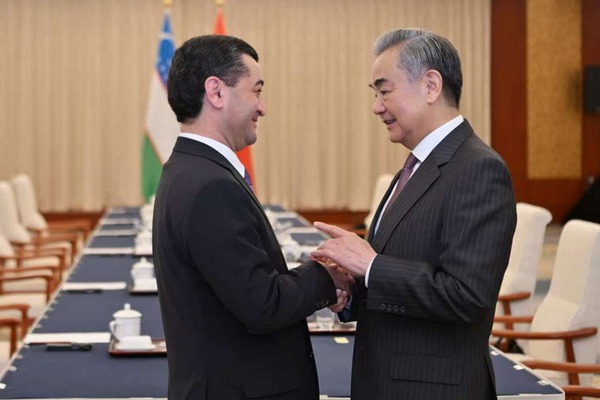China-backed pest control boosts yields

A joint initiative by the Food and Agriculture Organization and the governments of China and Kenya to promote biological alternatives to chemical pesticides in tackling fall armyworm is yielding promising results, particularly in maize farming across Kenya.
The project, part of the Global Action for Fall Armyworm Control under the FAO-China South-South Cooperation Program, is being piloted at three sites in Kenya.
Fall armyworm, a moth native to the tropical and subtropical Americas, has now spread to more than 70 countries. While it is destructive to maize, it can also affect more than 80 other plant species.
Since its first detection in Africa in 2016, the pest has severely disrupted agriculture and food security across the continent, affecting more than 80 million smallholder farmers. The FAO estimates that annual maize yield losses resulting from fall armyworm infestations in Africa range from 8.3 million to 20.6 million metric tons — a financial toll of between $2.5 billion and $6.2 billion.
In Kenya's Embu County, biological control methods are proving effective in managing fall armyworm infestations.
The methods being explored and implemented include the use of Bacillus thuringiensis, neem oil, Coragen insecticide, and emamectin benzoate. Pheromone traps are also in use to monitor fall armyworm activity. Additionally, the joint team is developing populations of parasitoids for future field release as part of an integrated pest management strategy.
Barrack Okoba, project manager for resilience and climate change programs at the FAO Kenya office, stated that the Global Action for Fall Armyworm Control project strongly advocates reducing the use of chemical pesticides in favor of safer, biological alternatives.
The project is at the stage of understanding the behavior and infestation patterns of the fall armyworm, which is key to developing effective biological control strategies, he said.
"We are still studying the patterns — how this insect moves between maize and other plants," he said. "We are also using models that will enable extension officers to predict infestations each season so that we are able to control and prevent the infestation."
The project is helping Kenya to not only strengthen its agricultural resilience but also improve its pest surveillance systems, he added.
Through the pilot projects, the team has identified several simple, low-cost practices that farmers can adopt to prevent fall armyworm infestations before they spread, he said.
Gu Baogen, a senior officer at the FAO's Plant Production and Protection Division, said the agency is assisting Ghana and Kenya in building capacity for sustainable fall armyworm management through the South-South Cooperation Program.
"We usually develop monitoring systems, identify effective agriculture practices for sustainable management, and conduct demonstrations and training sessions for farmers on integrating fall armyworm management," Gu said.
"Through the South-South Cooperation, we introduce new Chinese technologies, integrate them with local best practices, and develop systematic control approaches."
He expressed optimism that the successful practices being implemented in Kenya will serve as a model for other African countries.
"China-Africa cooperation will be strengthened and generate more innovative technologies and sustainable agricultural practices for managing plant pests and diseases. This will, in turn, contribute to food security, improved nutrition and better livelihoods for smallholder farmers across Africa," he said.
China has developed a series of integrated pest management practices to combat the fall armyworm, which are now being shared with other developing countries through the South-South cooperation framework, he added.
Nyabenyi Tipo, FAO Kenya's representative ad interim, said fall armyworm, first reported in Kenya in 2017, has evolved into a national agricultural threat, affecting more than 80 percent of maize farmers nationwide.
Control efforts have been hampered by an overreliance on unregulated pesticides and limited adoption of integrated pest management, she said. This crisis is now being addressed through South-South and Triangular Cooperation among Kenya, China and the FAO.
Margaret Wambeti, chairperson of a local farmer field school, said those using the new technologies are expecting higher yields. "The Chinese agricultural technologies are very effective," she said.


































